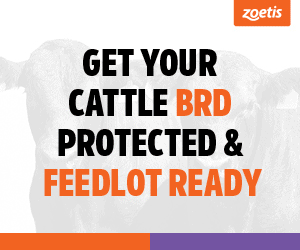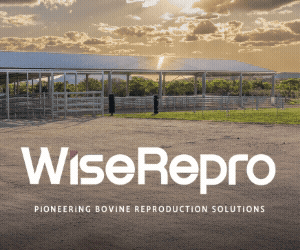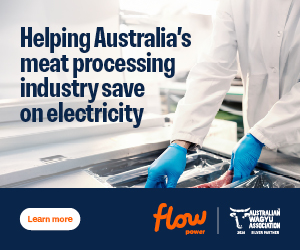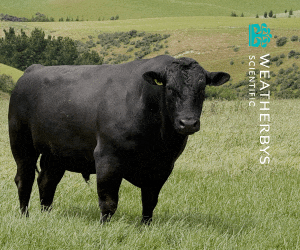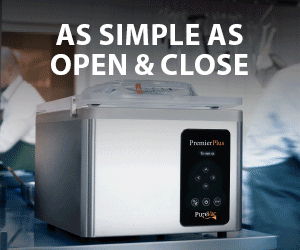The Wagyu Fellowship
Scholarship Program
WAGYU FELLOWSHIP PROGRAM
The Wagyu Fellowship program is to allow students to undertake research for the advancement of Wagyu to share with industry, with multiple options for members of the industry that may find themselves in different research/study circumstances.
Any projects that can be shown to be of value to the Wagyu industry will be considered. This may include any sector of the Wagyu supply/value chain and may include interests such as genetics, breeding, production, nutrition, processing, and meat science.
Objectives of the program are to develop younger leaders for the Wagyu industry; increase the education, experience and skills within the Wagyu industry; develop lasting friendships across the international Wagyu industry and advance knowledge and learning in the Wagyu industry.
Wagyu Study Fellowship
A Wagyu Fellowship is a remarkable opportunity to research a topic that you are passionate about and experienced in, that contribute to the improvement of the Wagyu sector. Aimed at young people who wish to undertake on-farm or independent projects to advance the Wagyu Sector. Offered to those not undertaking formal studies, it is open to members of the Wagyu sector.
Wagyu Postgraduate Fellowship
Developed to support postgraduate University students looking to undertake research on Wagyu topics.
Dr Simon Coates Scholarship for Veterinary and Reproduction Science
The Dr Simon Coates Scholarship for Veterinary and Reproductive Science is aimed at students students who are studying veterinary science or researching reproduction and breeding in relation to Wagyu.
Through the Dr Simon Coates Scholarship for Veterinary and Reproductive Science, we can continue to recognise the great contributions of one of our founding members and honour his passion for the advancement of Wagyu.
Wagyu Genetic Diversity Fellowship
This grant would provide $10,000 towards assisting members to nominate 2 sires for the AWA PTP that demonstrate high genetic diversity. Using genomic information, the AWA can determine high genetic diversity sires within each year of birth and seek to assist members with high diversity sires to participate in the AWA-PTP. The AWA member would be required to nominate two high genetic diversity sires, identified to the member by the AWA and pay the fee of $7,500 per sire. The AWA would then award the member with a Genetic Diversity Grant, providing $10,000 to the AWA member to assist with costs of semen testing and collection of genetic materials of interest to the AWA for future benefit of the breed. The AWA may keep the straws of the sire for Auction by tender or for use in future AWA programs.
If the AWA awarded two Wagyu Fellowship Genetic Diversity Grants per year, the AWA would secure 12 high genetic diversity sires within the AWA-PTP within the first 3 years of the program.
Wagyu Net Feed Intake Fellowship
This grant provides $10,000 towards assisting members who have implement Net Feed Intake recording infrastructure using Vytelle/GrowSafe feeders. As an example, a Wagyu Fellowship NFI Recording Grant of AUD $10,000 could be provided to an AWA member implementing a 4-node or higher number NFI recording system to complete implementation of the system (not including capital costs), offset management costs and running costs over a 3-year period to incentivise recording of Net Feed Intake on registered animals and provision of data to the AWA to support development and implementation of an NFI EBV.
Through a 4-node system, a member could run 3 trials per year of 40 animals per trial, totalling 120 animals per year. If AWA awarded two Wagyu Fellowship NFI Grants per year for 3 years, it would enable cumulative testing of up to 1,440 animals over the 3 years, leaving an ongoing testing capacity of 720 animals per year. The AWA is already working with AWA-PTP contributor herds to make them aware of NFI testing and promote the benefits of NFI testing to them. The AWA may prioritise access to the grant to AWA-PTP herds or by members who commit to testing AWA-PTP progeny or large numbers of registered progeny and provision of this data to the AWA.
Young Wagyu Breeders Group
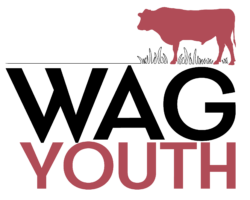
The Young Wagyu Breeders Group (WAGYOUTH) was setup by a group of young enthusiastic Wagyu Breeders, made capable by funding from the Wagyu Fellowship Program in 2024. WAGYOUTH intends to provide forefront thought and education on sustainability, market access, genetic analysis & technology among Australian Wagyu breeders aged 18 to 30 years old. This consists of assisting the youth in navigating the differences they find within the breed, providing dynamic thought and consideration. Members have the opportunity to learn from the best in the industry through different sorts of mentorship & networking, providing an alternative aspect to the way they currently do things.
Use the subscription button below to keep up-to-date with all things WAGYOUTH including the latest news and events happening in your area.



